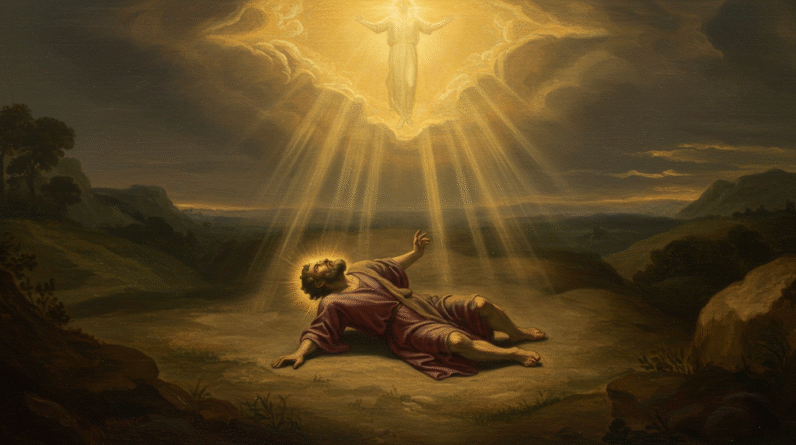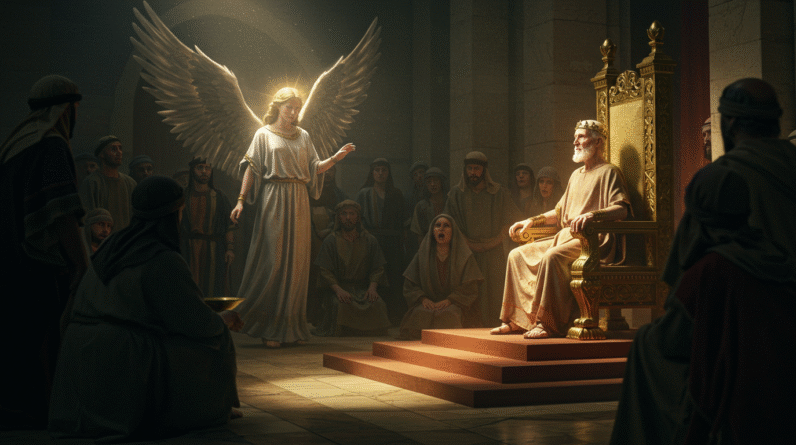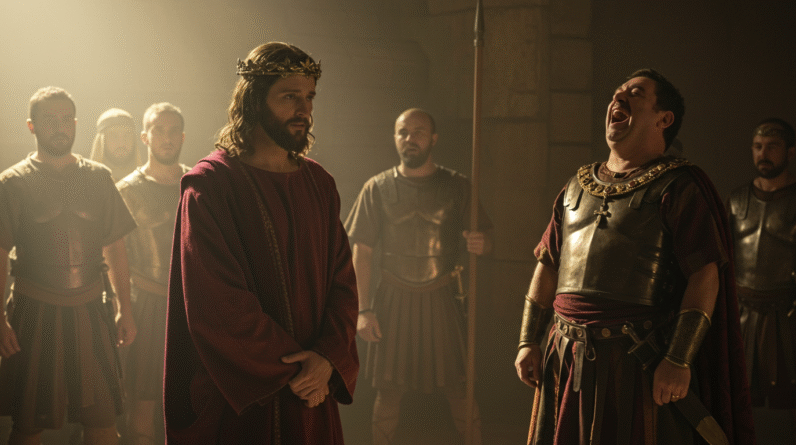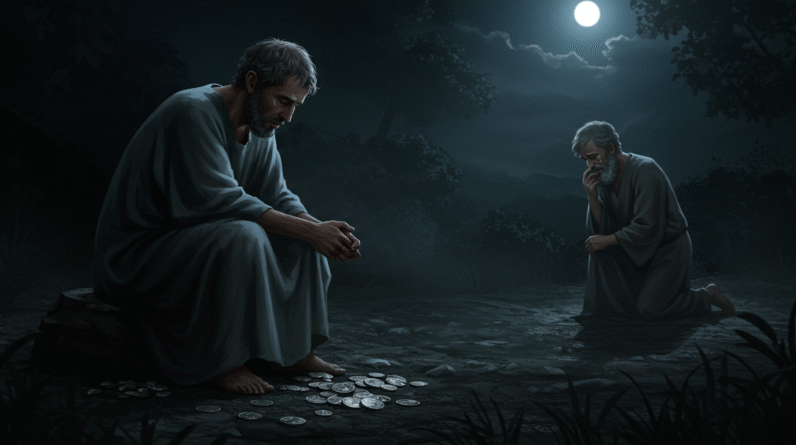Explore Goliath’s story from 1 Samuel 17:4-10, revealing his defiance against God and the timeless lessons of faith, pride, and divine power in this insightful post.
Goliath: The Fearsome Challenger of 1 Samuel 17:4-10
The Enemy of God in the Old Testament
Introduction
What does it take for a single name to echo through history, evoking fear and intrigue in equal measure? Goliath’s name surely does that. Mentioned in the classic confrontation recorded in the Bible, it is a tale that has been recounted countless times. But who was Goliath, and why did he stand in such stark opposition to the Divine? This article delves into the life and legacy of Goliath, exploring his identity as the infamous foe of Israel, his defiance against God, and the timeless lessons we can draw from his story.
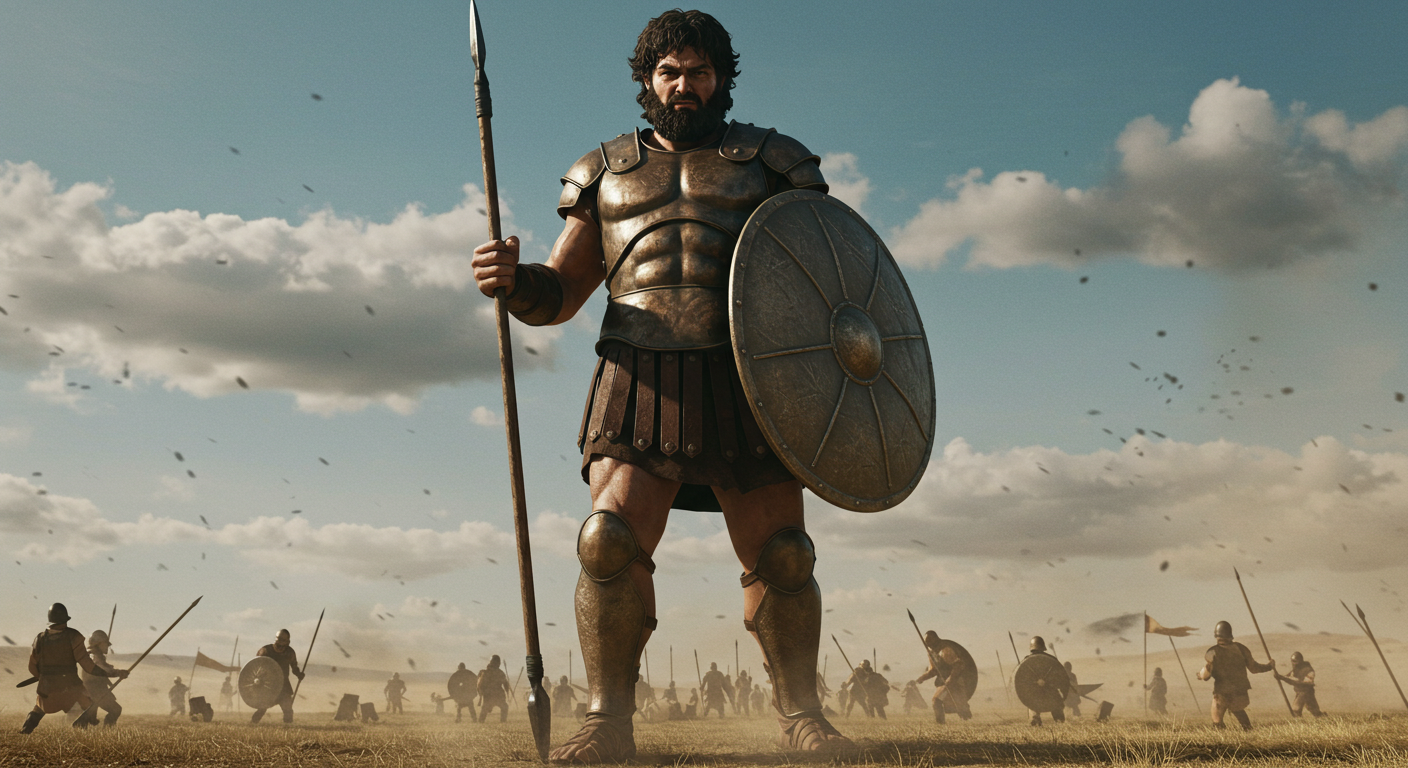
Who Was Goliath?
The identity of Goliath often revolves around the image of a towering giant. Described in the Bible as a Philistine warrior from Gath, Goliath’s immense stature and formidable armor underscore his role as the ultimate challenger. Serving as a champion for his people, the Philistines, he epitomized strength and intimidation. According to the Old Testament, this confrontation took place during the reign of King Saul, a time when the Philistines and Israelites were frequent foes, locked in a battle for dominance in ancient Canaan.
Goliath’s significance extends beyond his physical attributes; he symbolizes the tangible threats the Israelites faced from surrounding nations. His presence in the narrative of 1 Samuel 17 highlights this tension, portraying him as a key antagonist in the unfolding story of Israel and its relationship with God.
Goliath’s Opposition to God
Motivation
What propelled Goliath to stand in defiance against the God of Israel and His chosen people? His opposition likely stemmed from a deep-seated pride and confidence in his might and the strength of the Philistine military machine. For Goliath, like many rulers and warriors of the time, military supremacy equated to divine favor. Standing nearly ten feet tall according to some interpretations, Goliath’s very presence challenged the Israelites to prove the legitimacy of their God in the face of raw human power and prowess.
Key Actions
Goliath is forever etched in history for his bold challenge to the Israelites, as recorded in 1 Samuel 17:8-10. He defied the army of Israel, demanding someone come forward to fight him in a winner-takes-all contest, an offer that was as terrifying as it was disdainful. This confrontation at the Valley of Elah wasn’t just a personal challenge to King Saul and his army but was an affront to the God of Israel Himself.
The biblical narrative emphasizes Goliath’s contempt for Israel and its God, presenting him as the ultimate embodiment of human pride in contrast to divine faithfulness. His taunting words and fearsome presence intimidated an entire army, encapsulating the real and symbolic struggle between the forces of the world and the people of God.
The Consequences of Goliath’s Opposition
Divine Judgment
Goliath’s opposition to God’s people and, by extension, to God Himself led to his unexpected downfall. The consequence was both immediate and profound. In a dramatic turn of events, young David, armed with nothing but a sling and faith, defeats this giant in full combat gear, as seen in 1 Samuel 17:49-50. The vivid account of Goliath’s defeat provides a striking illustration of divine judgment. It serves as a potent reminder that God’s power transcends physical might and military superiority.
Biblical Teachings
From Goliath’s swift downfall, we learn enduring lessons about the consequences of human pride and overconfidence when they clash with divine purpose. The story teaches that faith in God can fortify individuals to surmount seemingly insurmountable odds. The fact that God chose a young shepherd boy to topple the feared warrior underscores the Bible’s recurring theme that true strength lies in faith and trust in God rather than in conventional power or appearances.
Goliath in the Larger Biblical Narrative
Connection to Other Figures
Goliath’s story is intertwined with one of the Bible’s most beloved figures, David, who would go on to become the great King of Israel. This pivotal encounter between David and Goliath not only changes the trajectory of David’s life but also affects the future of Israel. It sets the stage for David’s rise to prominence and illustrates the concept of divine favor in elevating the humble and faithful over the mighty and arrogant, resonant in the triumph of David over Goliath.
God’s Redemptive Plan
Goliath’s opposition and subsequent defeat fit neatly into the broader theme of redemption woven throughout the scripture. His defeat at the hands of David symbolizes God’s plan to deliver His people from the hands of their enemies, offering a glimpse of the larger redemption story realized in Jesus. This event foreshadows God’s pattern of using the seemingly weak to accomplish His purposes, and by reminding us of the ultimate victory of good over evil.
Lessons We Can Learn from Goliath
Spiritual Insights
Goliath’s life and downfall offer us profound spiritual insights. Perhaps the most salient lesson for contemporary readers is about the perils of pride and the omnipotence of faith. Goliath’s story is a cautionary tale about the fleeting nature of earthly power and the enduring strength of divine promise.
Warnings
Studying Goliath’s penchant for intimidation and supremacy can also serve as a warning. It cautions against allowing pride to cloud judgment and dismissing the power of faith. As seen through Goliath’s demise, dependence on our strength without the humility to recognize a higher power can lead us to a downfall much like his.
Application
Modern believers can apply the lessons from Goliath’s life by cultivating humility and nurturing faith, especially when faced with daunting challenges. Trust in God’s provision and purpose can empower us, much like it did David, to confront life’s giants with courage and serenity.
Conclusion
Goliath epitomizes the apex of human arrogance and reliance on power, contrasting sharply with the humbler, faith-driven perspective exemplified by David. His unfortunate end serves as a reminder of the divine judgment reserved for those who defy God. As you reflect on Goliath’s narrative, consider the place of humility and faith in your own life and faith journey.
Acknowledgment: All Bible verses referenced in this article were accessed via Bible Gateway (or Bible Hub).


